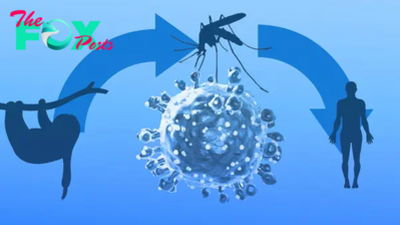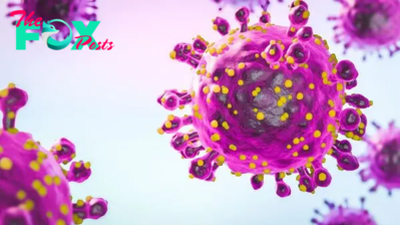Health
For C. diff, antibiotic resistance comes at a cost
The superbug Clostridioides difficile, or C. diff, can cause dangerous gut infections. There are limited options for treating it, and patients often experience reinfection, which can be deadly. Now, a new study reveals that this dangerous bacterium can evolve antibiotic resistance quickly, although this resistance comes with tradeoffs for the superbug..
The findings underscore the need for careful monitoring of the bacteria's resistance to antibiotics, particularly in hospitals, the study authors said.
In most people, beneficial bacteria living in the gut shield it from infection. When those bacteria die — for instance, as a result of antibiotic treatment for an unrelated infection — the large intestine becomes vulnerable, and this is often when C. difficile strikes. People who are taking or have recently taken antibiotics are up to 10 times more likely to contract C. difficile than those who have not. Other risk factors include staying in a hospital or care home, having a weakened immune system, or being very young or very old.
Related: Superbugs are on the rise. How can we prevent antibiotics from becoming obsolete?
Unfortunately, only three antibiotics are available to treat C. difficile infections. The drug of choice for most patients is vancomycin, but in about one-third of patients, their infection returns within a month after they've finished treatment. One possible reason for this, the study authors hypothesized, is that C. difficile is evolving to resist vancomycin.
"We don't know if there are resistant strains circulating and causing human infections because hospital labs don't test for resistance to vancomycin," study author Jessica Buddle, a doctoral student at the University of Sheffield in the U.K., told Live Science. "Around the world, there have been only a few reports of resistance. However, given the lack of testing, this likely isn't the whole story."
To find out whether the bacteria might be developing vancomycin resistance, the researchers genetically engineered two populations of C. difficile: one with a normal mutation rate and one that evolved more quickly. For the new study, published Aug. 15 in the journal PLOS Biology, they grew five strains of each population in the presence of increasing concentrations of vancomycin.
-

 Health1h ago
Health1h agoCOVID-19, flu and RSV shots − an epidemiologist explains why all three matter this fall
-

 Health1h ago
Health1h agoGot an unaffordable or incorrect medical bill? Calling your hospital billing office will usually get you a discount
-

 Health5h ago
Health5h agoParenting Is More Stressful Than Ever. Here’s How to Cope
-

 Health11h ago
Health11h agoArctic expedition uncovers deep-sea microbes that may harbor the next generation of antibiotics
-

 Health21h ago
Health21h agoRare Mosquito-Borne Disease Causes First Death in New Hampshire
-

 Health1d ago
Health1d ago9 Weird Symptoms Cardiologists Say You Should Never Ignore
-

 Health1d ago
Health1d agoThe Nuremberg Code isn’t just for prosecuting Nazis − its principles have shaped medical ethics to this day
-

 Health1d ago
Health1d agoEverything to Know About the Oropouche Virus, Also Known as Sloth Fever

















